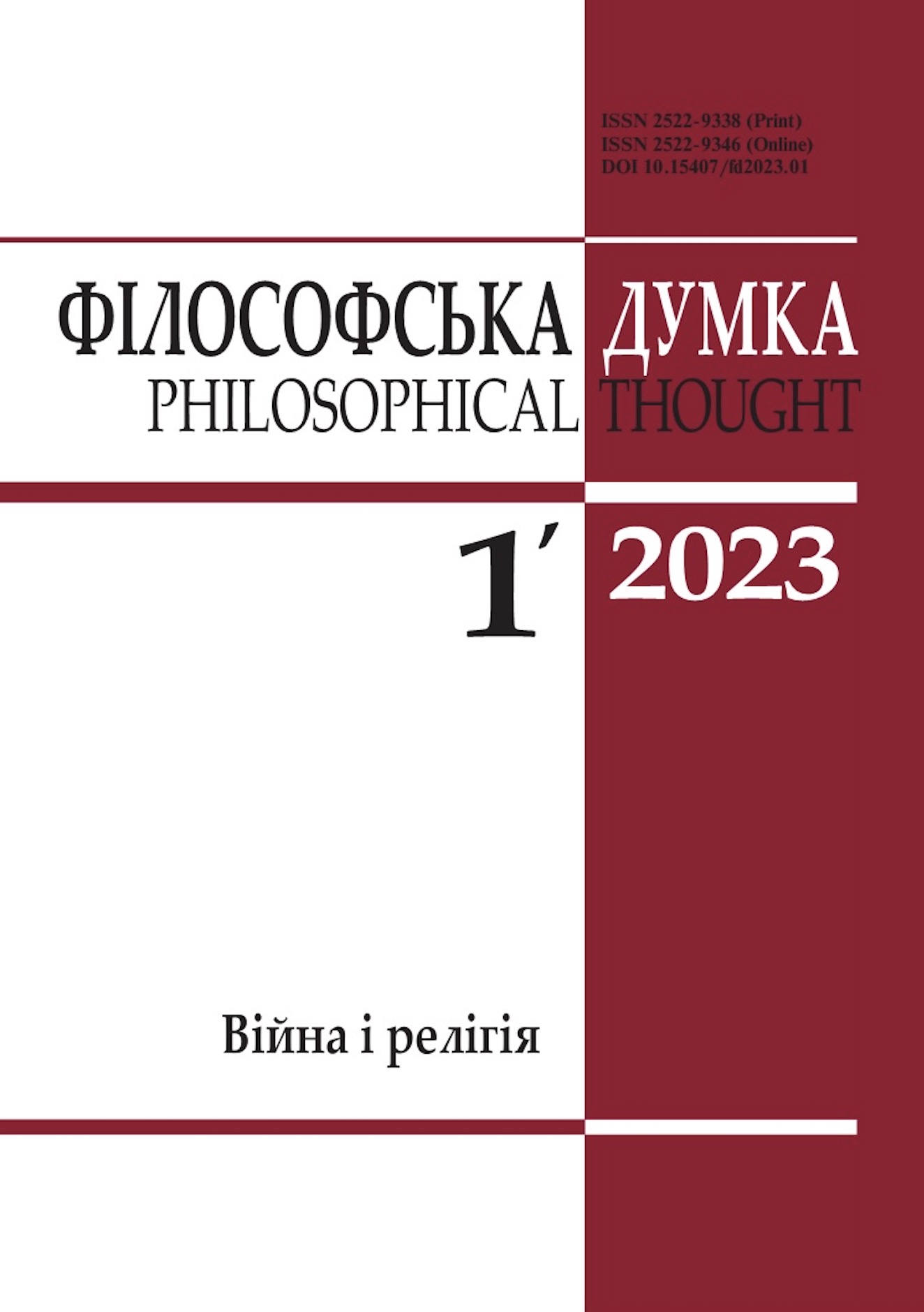About the war in Ukraine: the price of democracy
PHILOSOPHICAL DISCOURSES OF WAR
DOI:
https://doi.org/10.15407/fd2023.01.131Keywords:
war in Ukraine, democracy, empire, instrumentalisation of history, historical memoryAbstract
The article analyzes the political motives of Ukrainian resistance to Russian invasion and aggression. First of all, it emphasizes the falsification of history by Russian propaganda, its use of history as a political instrument, the destruction of the traumatic memory of the recent imperial past and the glorification of the “glorious centuries-old” imperial history in modern Russia. This determines the difference in the structure of the historical memory of Russians and other former peoples of the empire, and the recent memory of the tragic imperial past is the leading factor in the choice of the Ukrainian and Moldovan peoples for their political destiny. The article also shows that this choice, as well as the desire for truth, freedom and rights, determines these peoples’ slow but sure progress toward democracy. These choices and aspirations are at the same time a determining factor in the ability of the Ukrainian people to resist Russian armed aggression. Instead, the so-called “civilizational” links between the former peoples of the empire, with which Russia tries to justify its aggression, are actually a cover for its desire for political dominance.
The article also outlines the importance of Ukrainian resistance for European democracies, calling for their unconditional support. The war in Ukraine is a challenge for them, because no matter what problems democracies around the world are facing today, they will remain actors of their own history only if they provide support to all those who resist the destruction of the minimum of rights and freedoms that define democracy. Using Kant’s work «Perpetual Peace» as an example, the article also shows that the cessation of war for the sake of cessation of war, which is often called for today, will not contribute to the establishment of peace. It will leave grounds for the renewal of war, which the aggressor, if he will not change its political essence, will always be able to use it again.
References
Alexievitch, S. (2013). La fin de l’homme rouge, ou le temps du désenchantement. Arles: Actes Sud.
Coquio, C. (2022). A quoi bon encore le monde ? La Syrie et nous. Arles: Actes Sud.
Crépon, M. (2008). La culture de la peur I. Démocratie, identité, sécurité. Paris: Galilée. Crépon, M. (2023). Journal de Moldavie, 1987-1988, juillet 2012. Paris: Verdier.
Havel, V. (1989). Lettre ouverte à Gustav Husak. Dans: Havel, V. Essais politiques. Paris: Calmann-Lévy, 1989.
Kant, E. (1986). Projet de paix perpétuelle (trad. d’un auteur anonyme (1796), revue par Heinz Wismann). Dans: Œuvres philosophiques, t. III. Paris: Gallimard, Bibliothèque de la Pléiade.
Downloads
-
PDF (Українська)
Downloads: 305
Published
How to Cite
Issue
Section
License
Authors who publish with this journal agree to the following terms:
- Authors retain copyright and grant the journal right of first publication.
- Authors are able to enter into separate, additional contractual arrangements for the non-exclusive distribution of the journal's published version of the work (e.g., post it to an institutional repository or publish it in a book), with an acknowledgement of its initial publication in this journal.
- Authors are permitted and encouraged to post their work online (e.g., in institutional repositories or on their website) prior to and during the submission process, as it can lead to productive exchanges, as well as earlier and greater citation of published work (See The Effect of Open Access).


